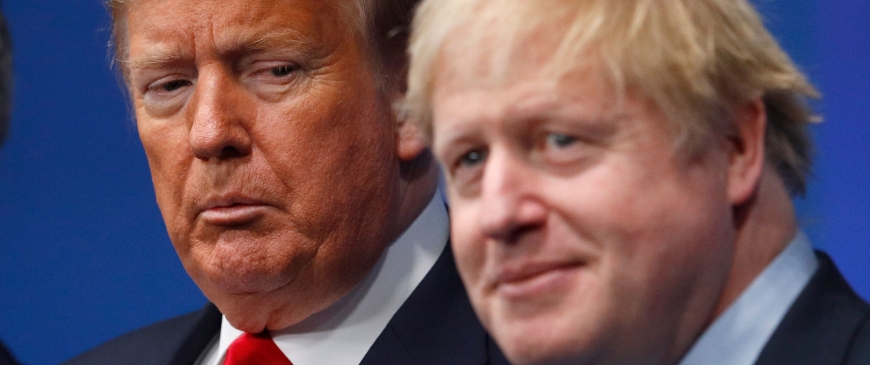
Boris Johnson is clearly in no rush to do a big US trade deal, as proven by his tough red lines
For those of us who assumed the UK would rush head first into trade talks with the United States, myself included, the last few months have come as somewhat of a surprise. The UK’s decision to allow Huawei to continue to provide 5G infrastructure reportedly soured relations with President Donald Trump, and suggests that for Number 10 the domestic agenda (in this case the speedy roll out of 5G) is more important than a quick trade deal with the US.
And the UK’s publication of its objectives for a free trade agreement with the US suggests a tough negotiation is to follow. According to the document, the NHS and the price the NHS pays for drugs are “not on the table”, that it will be cautious when it comes to liberalising agriculture tariffs, and that the UK intends to uphold “high levels” of protection when it comes to food safety.
The US’s objectives for the free trade agreement are well-known – they were published in February 2019 – and if the UK is to secure a quick deal it would need to compromise in many of these areas. On drug pricing, the US has a long running issue with how the NHS assesses the fair value of medicines, and removing agriculture tariffs along with EU bans on certain American production methods remains a core objective.
The UK’s red lines on the NHS and drug pricing should be viewed as credible. There is little chance of a trade agreement ever getting public approval if it even sounds like it could increase costs for the NHS. There is also precedent for the US conceding on related issues over the course of negotiations: in its trade negotiations with Australia, provisions on drug pricing were taken out of the trade agreement and pushed into a side letter. Additionally, in Trump’s recent renegotiation of NAFTA, the Democrats stripped out provisions that would have extended the test date exclusivity period for biologic medicines.
However, if a comprehensive free trade agreement is to be concluded, it is difficult to see how the UK does not concede to US demands on agriculture and food standards. Here, the UK’s negotiating objectives leave more wriggle room: while they commit the UK to maintaining stringent food standards, they do not guarantee that protections will remain the same as they are today. However, even if changes can be made to placate the US, they will not be able to happen quickly, and would probably be part of a broader UK review of inherited EU legislation once the UK leaves the transition period.
On the US side, we should also remember that this is an election year, and the Democrats in Congress are unlikely to give Trump another win on trade so soon after they signed off on the NAFTA reboot.
None of this is to say that the UK and US won’t do anything this year. Negotiations will begin, and it is quite possible that a limited phase one deal – for example, one that saw Trump exclude the UK from his trade war tariffs in return for the UK promising to fast-track the authorisation of GMO products – is agreed to provide a political win for both Johnson and Trump. But unless the UK is willing to back down quickly, substantive negotiations on a comprehensive deal will run for a while yet. And if the government’s new economic assessment is to be believed – that in 15 years’ time a US-UK free trade agreement could leave the British economy just 0.16 per cent larger than it would have been otherwise – that’s not the end of the world.
Sam Lowe is senior research fellow at the Centre for European Reform.
